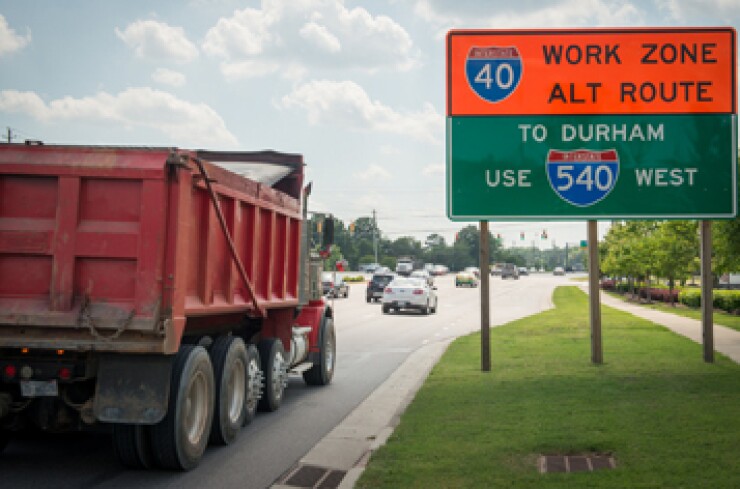A wide majority of voters decided they were willing to pay higher taxes to borrow $206.7 million to widen roads, build new sidewalks and bicycle lanes, and support other transportation projects in the city.
With all 108 precincts counted late Tuesday, the transportation bond passed by a margin of nearly three votes to one.
The bonds will be paid for by up to a 1.29-cent property tax increase that would add $13 to the annual tax bill for each $100,000 in assessed property value.

The bulk of the money generated by the bonds – more than $150 million – will go to widen and improve more than a dozen roads in about every corner of Raleigh. The rest of the money will go toward transportation planning, sidewalks, traffic calming and transit projects throughout the city.
The measure had the support of the Greater Raleigh Chamber of Commerce, which spearheaded a Raleigh for Roads campaign to urge voters to approve it. Dana Martinez, the chamber’s vice president of government affairs, said the chamber’s polling showed broad support for the bond but that organizers of the campaign didn’t want to assume supporters would come out to the polls.
Janice Bonham West voted for the bond, because she thinks the city needs the wider roads and the new bike lanes and sidewalks that it will pay for.
“We’re growing, and we’re going to continue to need that to make the city accessible and appealing,” said West, 54, who lives near Wade Avenue and owns Bliss Body Yoga.
While traffic and transit in general are perennial campaign issues in Raleigh, the bond did not get a lot of attention from most candidates. Mayor Nancy McFarlane has supported the bond, while her main Democratic opponent Charles Francis seldom mentioned it.
Meanwhile, the Wake County Republican Party and Republican mayoral candidate Paul Fitts opposed the bond, as did the Wake County Taxpayers Association. Not only did they dislike the tax increase, but they questioned spending money on bike lanes, buses and other projects that don’t involve repaving or widening roads.
“We are opposed to bicycle lanes,” said Edward Jones, who leads the taxpayers association. “Most of the places we see them here in Raleigh, they’re suicide lanes. That’s what they are, suicide lanes.”





